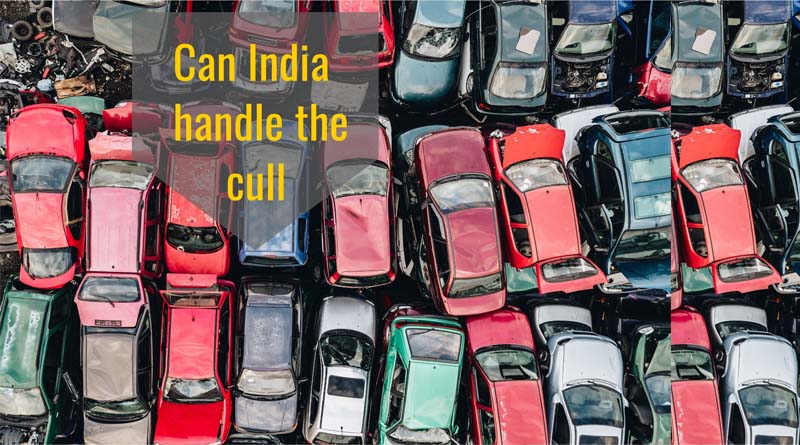

Finally, National Scrappage Policy
PM Modi said that this policy will play a big role in the modernization of the vehicular population in the country, removing unfit vehicles from the roads in a scientific manner. The goal for 21st century India to be Clean, Congestion Free & Convenient Mobility, is the need of the hour.
PM Modi also tweeted a series of tweets where he said,
The new scrapping policy is an important link in the circular economy and the waste to wealth campaign. By following the principle Reuse, Recycle and Recovery this policy will also promote the country’s self-reliance in the auto sector and in the metal sector.
Under the Policy:
A certificate will be given on scrapping the old vehicle. Whoever has this certificate will not have to pay for the registration of a new vehicle, and an exemption in road tax will also be given to that person.
Old vehicles will not be scrapped merely on the basis of age but, they will be scientifically tested through authorized, automated testing centers. It will ensure that registered vehicle scrapping facilities all over the counties are technology-driven and transparent.
This policy will reduce the harmful impact of pollution on our health, also, it will give new energy and security to the scrap-related sector. The government expects to generate jobs for about 35,000 people at vehicle fitness centers and scrapyards while bringing in a fresh investment of more than Rs 10 thousand crores. The vehicle fitness test cost will depend on the type of vehicle. For a personal vehicle, it will cost Rs 300-400, while for a commercial vehicle it could be Rs 1,000-1,500.
PM also regretted the fact that we had to import 23,000 crore worth of scrap steel during the last year as our scrapping is not productive and we are not able to recover energy and rare earth metals. He stressed that be it ethanol, hydrogen fuel, or electric mobility, with these priorities of the government, active participation of the industry is very important.
During the launch, Union Minister Nitin Gadkari mentioned that around 1 crore vehicles are there without any valid fitness. He also said that the policy is based on fitness and not the age of vehicles.
The policy will not be relevant immediately for vehicle owners, however. In the first phase, only government owned vehicles over 15 years will be eligible, before Heavy Commercial vehicles qualify from April 2023 onwards. Private vehicles of all types will be covered only from April 2024.
The policy should also speed up adoption of EV’s in the country as people junking old vehicles by 2024 are far more likely to consider EV’s, with a better charging network in place by then.
The policy, if intent meets action on the ground, will have a positive impact in terms of not just the jobs and innovation it fosters, but also the reduction in imports, and increased recycling it is likely to lead to from old clunkers.
In a significant move toward advancing green energy and industrial growth in the state, Himachal…
Golabl chemical conglomerate BASF has announced that its now offering the world’s first biomass-balanced polyethersulfone…
In a crucial stint to bolster the biogas sector and sustainable dairying in the country,…
TotalEnergies SE has received approval to proceed with its Middlebrook solar and battery project in…
Andhra Pradesh Chief Minister Chandrababu Naidu has inaugurated the Rs 1,000-crore green hydrogen plant of…
The BITS Pilani has developed an innovative solution for managing landfill leachate, domestic septage, and…